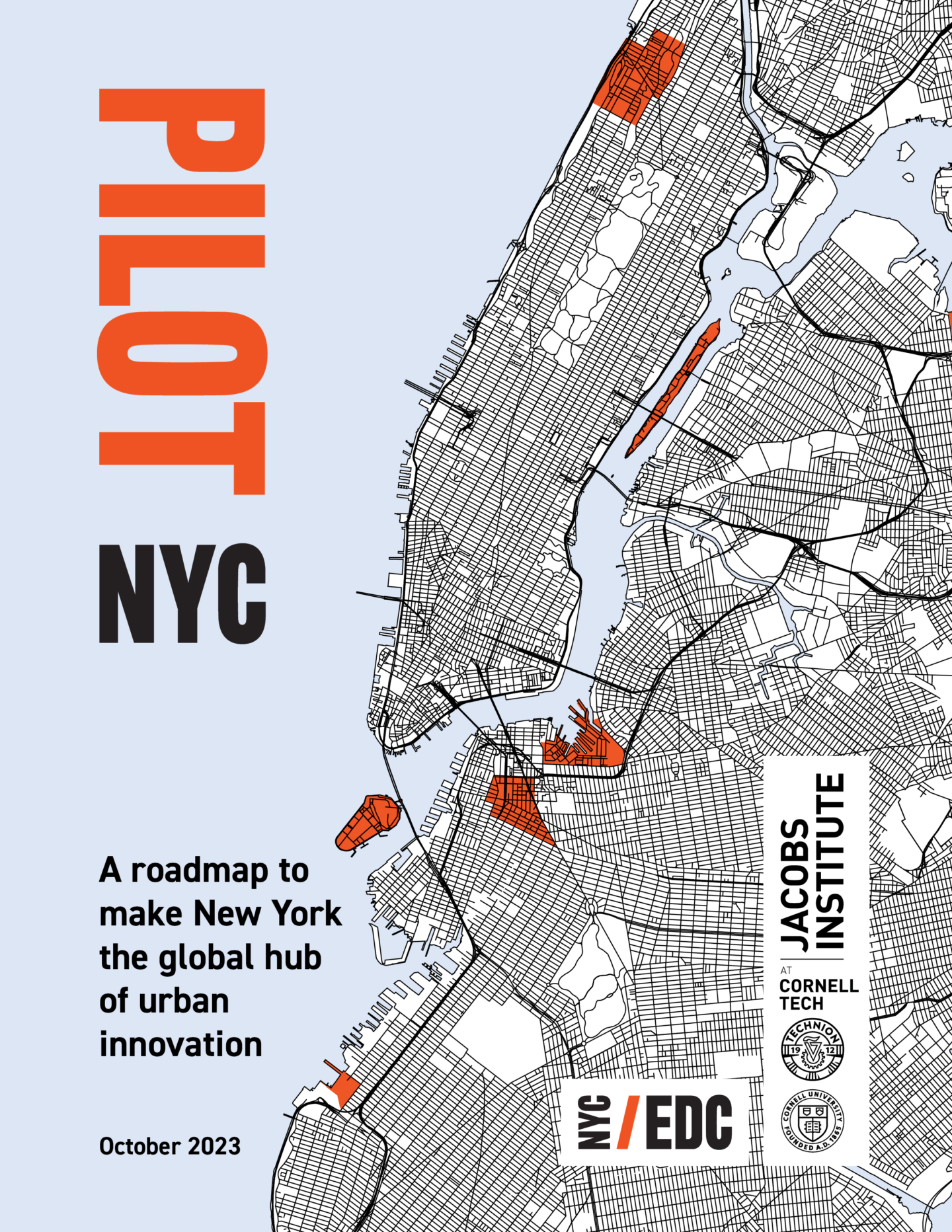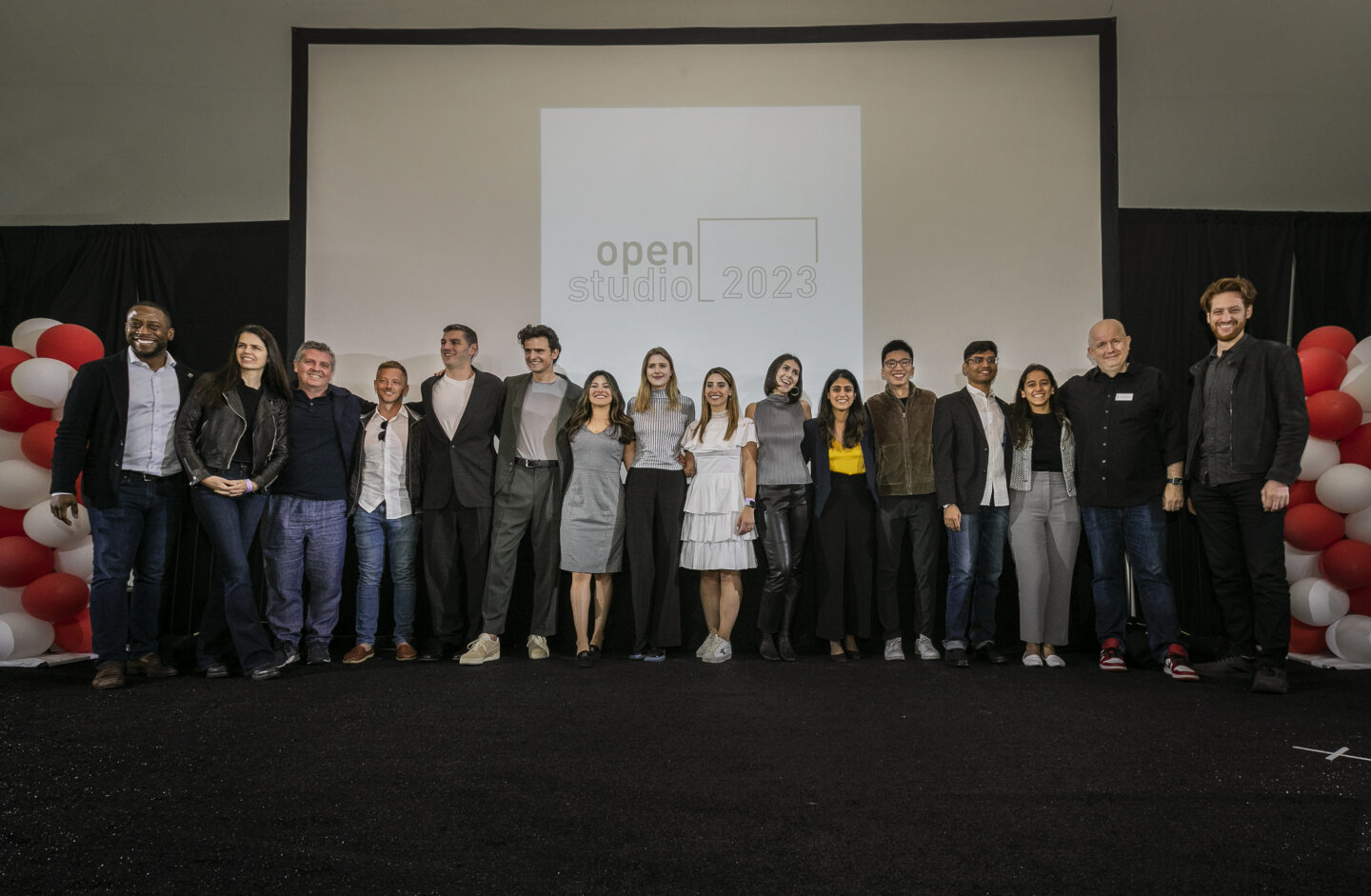Cornell Tech @ Bloomberg Speaker Series: Chad Dickerson and Bradley Horowitz
Categories

At the recent Cornell Tech @ Bloomberg speaker series, former Etsy CEO Chad Dickerson and Google VP of Product Management Bradley Horowitz spoke with Bloomberg Television’s Caroline Hyde in the wake of the opening of BigCo Studio at Cornell Tech.
During their talk, Dickerson and Horowitz touched on topics such as innovation within big companies, the advantages of taking risks, the difficulties of bringing new ideas to an established big company, and the importance of networking and diversity within the workplace.
Below are some of the topics Dickerson and Horowitz discussed concerning the sustainment of innovation within big companies.
On the culture of risk-taking:
Dickerson said that culture is a large aspect of maintaining risk-taking in a big company. If a big company is having problems innovating, there likely needs to be an assessment done on the issues within its organizational structure. A simple culture change to risk-management strategies could be all it takes to allow new ideas to flow.
“A lot of it is about risk-taking… One problem that companies have is they say, ‘I want to innovate; I want to try new things,’ and then someone pitches a new thing and they get shot down immediately and told, ‘Well, we can’t do that new thing.’…”
Keeping an open mind to all suggestions is key to fostering an environment where creators feel comfortable taking risks.
On the role of incubators within a big company:
Horowitz said that as a company such as Google grows, it becomes quite good at streamlining the process of building reliable products “for the billions.” However, this sort of mindset can stifle the type of out-of-the-box thinking that is crucial to maintaining an innovative workflow. Incubators are intended as a place where the creative strengths of the company can run free without the constraints of the brand holding it back.
“The tradeoff and the consequence of ‘building for billions’ is that you get weak at ‘building for millions.’ And by that I mean products that are more experimental, that may or may not work, don’t need to be bulletproofed and sort of tightened up because we’re still learning with them. And so, Area 120 was created as a sort of a safe place to explore those kinds of ideas without the ‘tax’ of our scale.”
On innovation strategy:
Horowitz said that what’s important is to separate the vital parts of your business from ones that have a bit more room for play.
“When you think about risk at a company like Google, there are parts of Google that need to operate like a pacemaker, like they are sort of the heartbeat of our business engines, and those are places where you don’t want to assume a lot of risk. And then there are other places where it’s absolutely, perfectly fine to invest some energy in that.”
Knowing these boundaries is vital to understanding what ideas should be entertained and invested in.
On culture and diversity:
Horowitz said, “Talent is evenly distributed but opportunity is not. It’s concentrated on Sand Hill Road and that’s a bug and we need to fix that together.”
Dickerson said that through talking with his mentees he has seen that diversity and inclusion is a high priority, but that industry numbers show that there is a long way to go. With a lot of young people entering the workforce, his outlook is hopeful.
“I’m very encouraged. I think most of the leaders that I speak with really care a lot about building more diverse teams. They see the correlation between team performance and diversity and they also really care about providing more opportunity to people who maybe have not always had that opportunity.”
Media Highlights
Tech Policy Press
Content Moderation, Encryption, and the LawRELATED STORIES





